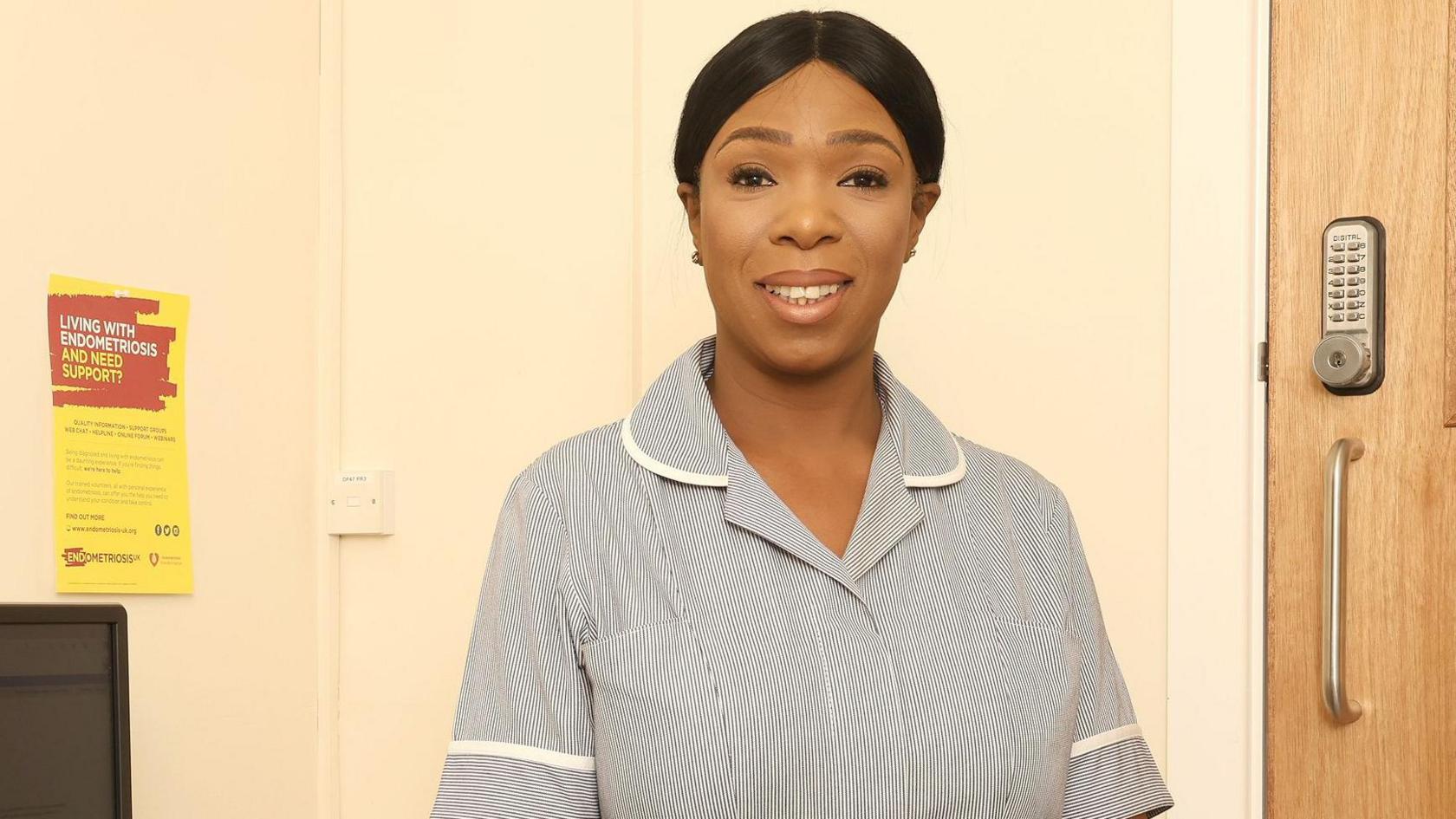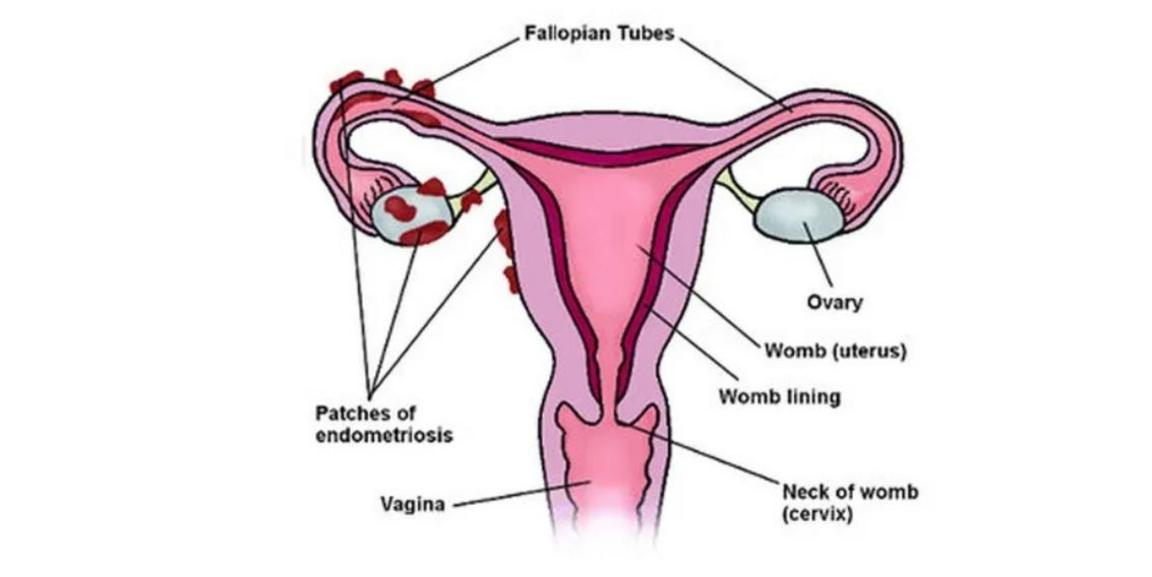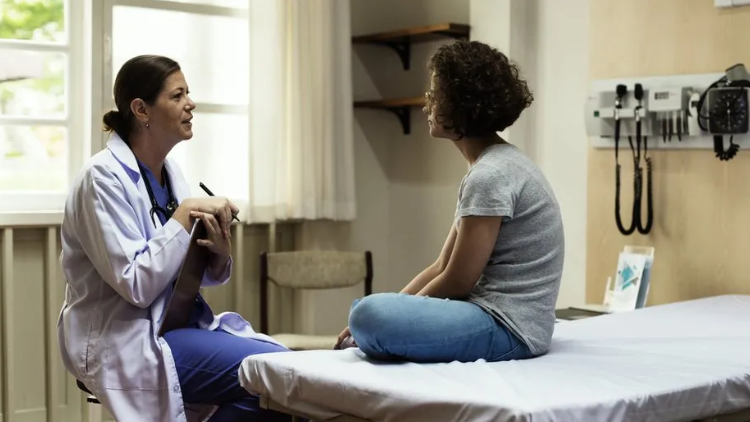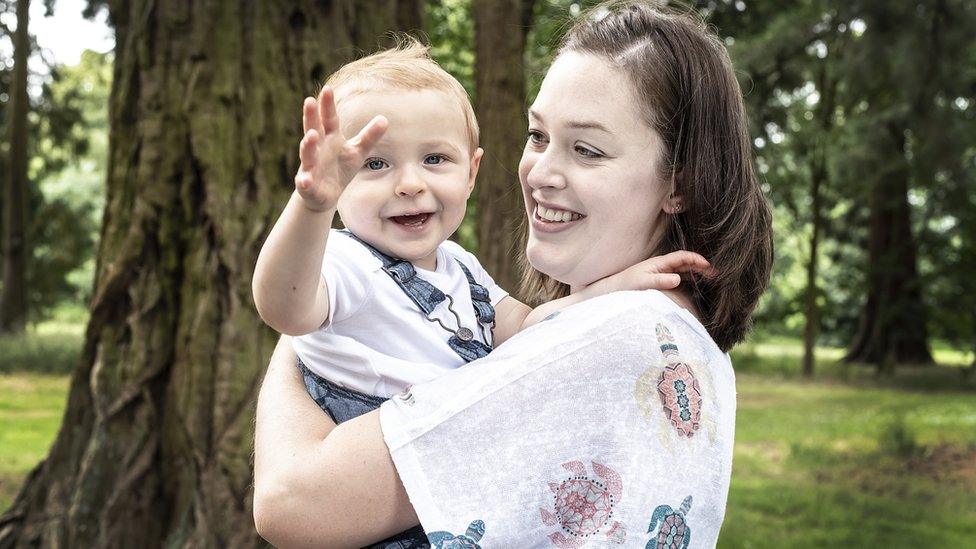NHS trust recognised as endometriosis centre

Yasmin Walker became first Clinical Nurse Specialist for endometriosis at Wolverhampton's NHS Trust
- Published
An NHS trust has been recognised as a specialist centre for endometriosis treatment and surgery.
The Royal Wolverhampton NHS Trust has received accreditation by the British Society of Gynaecological Endoscopy (BSGE) for the quality of care offered to patients.
The condition, where tissue from the lining of the womb grows in other places such as the ovaries and fallopian tubes, affects about 1.5 million women across the UK.
A weekly specialist clinic has been set up to help those who are suffering with symptoms associated with endometriosis.
Sian Kumar, a current patient, had surgery in November 2023 after being diagnosed with Stage 3 endometriosis.
She recalled: “Before the surgery I was in so much pain. My periods were so painful I was doubled up in agony. It affected my confidence and I felt so low.
“After surgery I felt much better and did some research into my diet, adding a vitamin supplement and adding in more exercise."

How endometriosis builds up around the fallopian tubes and ovaries
Yasmin Walker became the first clinical nurse specialist for endometriosis at the trust when she started in the post 18 months ago.
She said: "I am proud to say we have started Transcutaneous Electrical Nerve Stimulation (TENS) machine clinics which are used as another form of pain relief without side effects.
“I have recently completed the nursing prescribing course so I can prescribe some forms of pain relief and contraception to help with symptoms, and they can receive timely treatment and prescriptions without having to wait for doctors."
The Trust runs New Cross Hospital, West Park Hospital and Cannock Chase Hospital.
Endometriosis affects one in 10 women and the most common symptoms are:
pain in your lower tummy or back (pelvic pain) – usually worse during your period
period pain that stops you doing your normal activities
pain during or after intercourse
pain when urinating or defecating during your period
feeling sick, constipation, diarrhoea, or blood in your urine or faeces during your period
difficulty getting pregnant
Follow BBC Wolverhampton & Black Country on Facebook, external, X, external and Instagram, external. Send your story ideas to: newsonline.westmidlands@bbc.co.uk, external
Related topics
- Published23 March 2024

- Published5 May 2024

- Published6 March 2023
- Published18 August 2020

- Published9 August 2023
